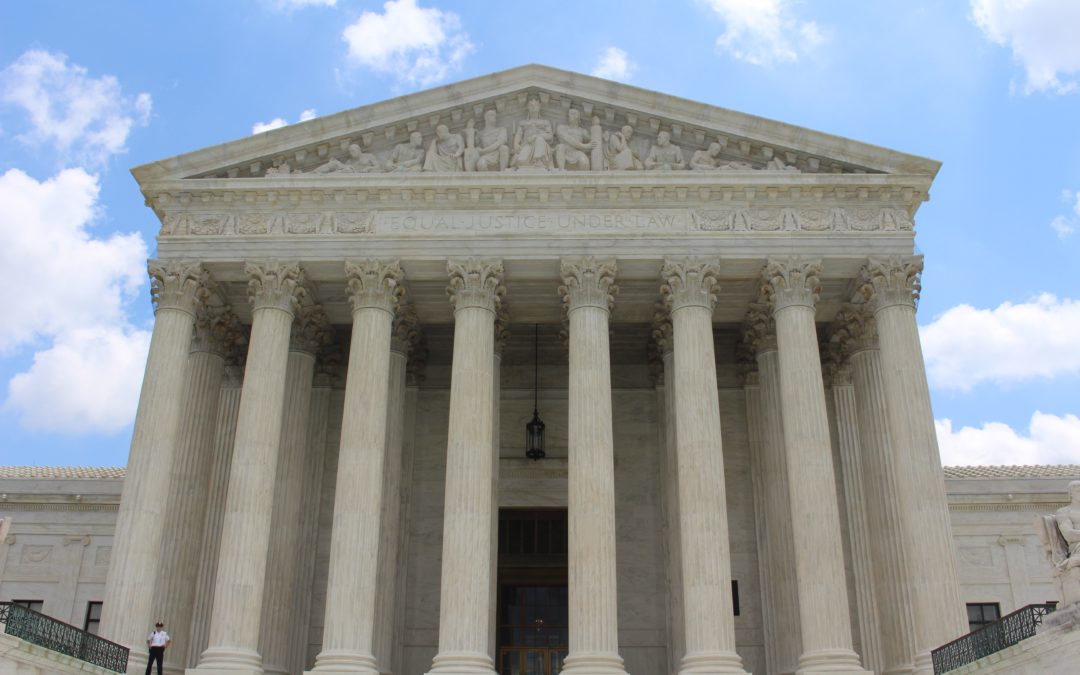Welcome to This Week in Civil Rights and Civil Liberties. State legislatures across the country continued their attacks on the LGBTQ community, President Biden reauthorized a major piece of legislation, and the Supreme Court prepared itself to hear arguments on a case which could affect voting rights in North Carolina. Just across the street from the Supreme Court, the Senate did its own preparation for the historic Supreme Court confirmation hearings of Judge Ketanji Brown Jackson.
The Texas Supreme Court closed off the final challenge to the state’s controversial anti-abortion law. The Texas legislature passed SB 8 last September, effectively banning abortions after about six weeks of pregnancy and instituting a peculiar enforcement mechanism which allows any private citizen in Texas to sue anyone who performs an abortion in Texas, or who “aids or abets” anyone getting an abortion in Texas. This past December, the United States Supreme Court, on a 6-3 vote, dismissed abortion providers’ lawsuit against state officials, but allowed the lawsuit against Texas health licensing officials, who are responsible for disciplining abortion providers who violate SB 8, to move forward. However, the Texas Supreme Court determined that SB 8 does not grant enforcement power to health licensing officials, but rather only to “private citizens”, and dismissed the final challenge to SB 8.
Across the nation, state legislatures have advanced significant anti-trans legislation. Following Texas governor Greg Abbott’s order to investigate parents who assist their children in undergoing gender-affirming procedures, and Alabama’s progress toward becoming the second state to criminalize gender-affirming care, Kentucky recently passed a bill to “ban transgender youth from playing sports consistent with their gender identity.” Those are just a few examples of the more than 130 anti-trans bills introduced across the country this year.
President Biden signed the 2022 Reauthorization of the Violence Against Women Act (VAWA), one of his landmark pieces of legislation during his time in the Senate. Apart from reauthorizing all current VAWA grant programs until 2027, the White House claims the reauthorization “increases services and support for survivors from underserved and marginalized communities” and establishes “a federal civil cause of action for individuals whose intimate visual images are disclosed without their consent.” Additionally, the reauthorization prevents local and state governments from threatening evictions against those who exercise their right to seek assistance under VAWA.
In Colorado, lawmakers are considering raising the minimum age of juvenile prosecution from 10 to 13 years old. The bill, which has exceptions for cases involving sexual assault or homicide, would address the higher risk of subsequent incarceration after an initial encounter with the criminal justice system, the lower likelihood of high school graduation for system-impacted children, and the disproportionate effect of juvenile prosecution on Black children.
Today, the Supreme Court will consider an effort by two Republican leaders of the North Carolina State Legislature to join a lawsuit to defend the constitutionality of a state voter-ID law. The law, which is much like North Carolina’s 2014 law that was struck down by the 4th Circuit, “requires voters to provide photo identification to cast a ballot…and instructs county election boards to provide ID cards at no cost to voters.” The legislators seek de novo review of the district court’s determination that there is no right to intervene because the state’s interest is adequately represented, and the NAACP argues for an abuse of discretion review of the district court’s determination that North Carolina’s attorney general is adequately representing the state’s interest.
Judge Ketanji Brown Jackson’s Supreme Court confirmation hearings begin today. If confirmed, Judge Jackson, a Harvard Law School alum, would be the first former federal public defender on the Supreme Court. Judge Jackson also served as a member of President Obama’s U.S. Sentencing Commission, as a U.S District Court Judge for the District of Columbia, and was just last year confirmed to the U.S. Court of Appeals for the D.C. Circuit. Despite her impressive credentials, recent history suggests that Judge Jackson will likely face difficult, partisan-powered hearings before becoming the first Black woman to sit on the Supreme Court.

